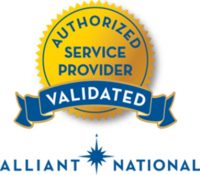WHAT YOU NEED TO KNOW ABOUT USING A POWER OF ATTORNEY IN YOUR REAL ESTATE TRANSACTION
There are many different scenarios under which it may be difficult or impossible for one of the parties to a real estate transaction to be present at closing to sign documents. Perhaps the Buyer will be out of town on the date of closing, or maybe the Seller lives in another state and is unable to travel to Texas for the closing. While there are many options to facilitate a party signing who can’t be physically present, including the use of a mobile notary, occasionally the party will choose to use a Power of Attorney to allow someone to sign documents on their behalf.
What is a Power of Attorney?
A Power of Attorney (“POA”) is a document which appoints another person (the “Agent” or “Attorney in Fact”) to act on behalf of an individual (the “Principal”) and grants them the authority to make decisions and sign on the Principal’s behalf as to certain matters. In the context of a real estate transaction, the Agent will act on the Principal’s behalf to sign and close the transaction under the direction and full consent of the Principal.
Legally, under a properly formed and executed Power of Attorney, acts by the Agent on behalf of the Principal have the same force and effect as if the Principal had acted/signed for himself.
Who can act as the Agent?
The Agent appointed to act is typically a trusted “third party” who doesn’t have a direct interest in the transaction. The appointed party should not be an involved realtor, as the realtor will have a direct interest in the transaction.
What should I do if I, or my client, needs to use a Power of Attorney in an upcoming transaction?
The most important thing is to let the title company know as soon as possible once you know that a party will want to use a Power of Attorney in their closing. If the party already has a Power of Attorney they would like to use, send this document to the Escrow Officer for their review, as it will need to be reviewed to ensure it meets legal and underwriting requirements for use in the real estate transaction. Often a special or specific power of attorney will be prepared for the sole and limited purposes of the transaction in question. The title company can assist in preparing the POA, which is an advisable way to proceed, as it will ensure that the document will have the necessary content and form for it to be used!
Lastly, if there is a lender involved in the transaction, it is important that they are made aware of the possibility that a Power of Attorney will be used. Lenders’ counsel will also need to review and approve the use of the POA.
Does the Title Company need the original signed and notarized Power of Attorney document? Is a copy good enough?
It is essential that the title company have the original signed and notarized power of attorney at or before closing! The transaction is unable to close based on a xerox or scanned copy. The Power of Attorney will need to be recorded in the land records, and an original is required.
What happens on the day of closing when a Power of Attorney is being utilized?
On the day of the closing, the Agent will attend closing on the Principals behalf, and will present his own proper identification. We will also require a copy (front and back) of the Principal’s valid un-expired drivers license or passport.
Immediately before the Agent begins signing closing documents, your Escrow Officer will contact the Principal via telephone to confirm that the Power of Attorney is still valid, has not been revoked, and that they are of sound mind and understand that the Agent will be signing on their behalf to buy or sell the specific property. It’s important to prepare the Principal so that she can ensure she’s available via phone on the day of closing so that this can be accomplished!
If you have questions about the use of a Power of Attorney in your next transaction, please don’t hesitate to reach out to your Heritage Title Company contact!





